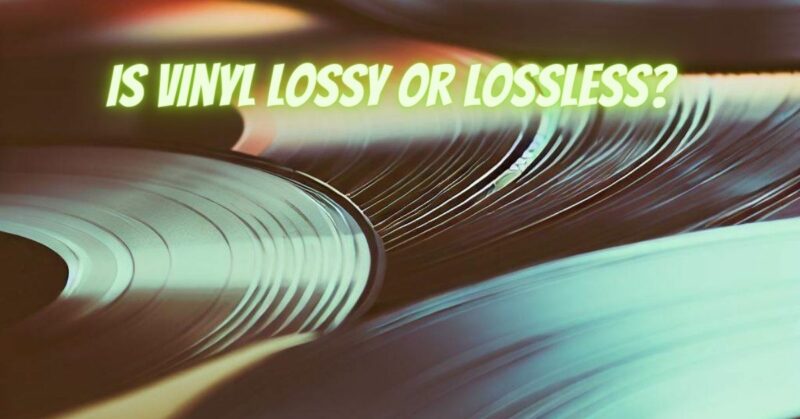Vinyl records are analog audio recordings that are stored on a physical medium. The sound is encoded as a series of grooves that are etched into the surface of the record. When the record is played, a stylus (needle) vibrates as it follows the grooves, and these vibrations are converted into sound waves by a cartridge and amplifier.
Analog recordings are considered to be lossless, which means that they do not lose any information during the recording or playback process. This is in contrast to digital recordings, which can suffer from lossiness due to the way they are encoded.
However, there are a few factors that can affect the sound quality of vinyl records, such as:
- The quality of the recording: The quality of the original recording will have a big impact on the sound quality of the vinyl record. A well-recorded album will sound better than a poorly recorded album.
- The quality of the pressing: The pressing process can introduce noise and distortion into the sound. A poorly pressed record will sound worse than a well-pressed record.
- The quality of the turntable and cartridge: The turntable and cartridge are responsible for converting the physical vibrations of the record into electrical signals. A high-quality turntable and cartridge will produce better sound quality than a low-quality turntable and cartridge.
If any of these factors are not ideal, it can result in lossiness in the sound quality of the vinyl record.
Ultimately, whether or not vinyl is considered to be lossless depends on the specific record and the playback system. However, in general, vinyl records are considered to be a high-quality audio format that can produce lossless sound.


